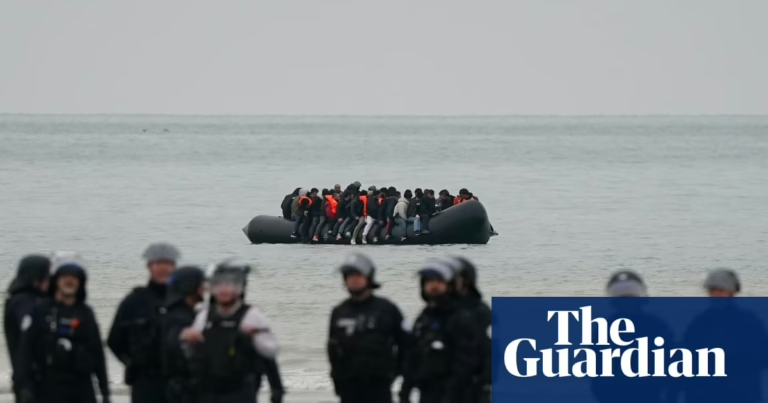The head of the UK’s border security has voiced his disappointment over the French authorities’ inability to implement measures aimed at disabling and puncturing boats ferrying asylum seekers in shallow coastal waters.
Martin Hewitt, the Home Office’s border security chief, informed MPs that frequent governmental shifts in France have created a challenging political environment, hindering the adoption of a key tactic designed to disrupt the so-called “taxi boats” used to smuggle migrants into the UK.
During his testimony to the Commons’ home affairs select committee, Hewitt described the delay in deploying more assertive interventions against these vessels-often operating close to French beaches-as a source of considerable frustration.
Back in June, the French government committed to revising maritime law interpretations to empower police to intercept migrant boats at sea for the first time, specifically within 300 metres of the coastline.
This policy shift was celebrated by insiders as a pivotal development in curbing the rising number of Channel crossings, which have surpassed 32,000 this year alone.
However, French law enforcement has since expressed reluctance to act on these new directives without guarantees of adequate protection, training, and equipment.
When questioned about the absence of this tactic in practice and whether France’s political turbulence played a role, Hewitt explained that he is collaborating closely with the French secretary-general for maritime affairs, a senior official, but continues to find progress slow and exasperating.
“I recently met with him in Paris to emphasize how critical it is for us to implement this maritime approach, especially given the ongoing issue with these ‘taxi boats,'” Hewitt said.
He added that President Macron had referenced this strategy during a summit in July while speaking with the British prime minister, underscoring its importance. “It’s disappointing that it has taken this long, and the political instability in France has undoubtedly been a contributing factor,” he noted.
Hewitt also highlighted the tragic rise in fatalities in the Channel last winter, describing the death toll as “horrific,” with many migrants risking their lives by boarding small boats without paying the smugglers.
According to the International Organisation for Migration (IOM), 2024 has become the deadliest year on record for Channel crossings, with at least 82 deaths, including 14 children. Additionally, around 20 more individuals are believed to have perished this year, alongside eight others attempting to cross.
He pointed out a shift in the demographics of asylum seekers, noting that many arrivals last autumn and winter originated from Eritrea, Ethiopia, Sudan, and Somalia. “This change has had several consequences. Notably, towards the end of last summer and into autumn and winter, we witnessed a disturbing spike in fatalities,” Hewitt explained.
He elaborated that smugglers temporarily lost control over the process, particularly with Eritrean and Ethiopian migrants, who were boarding boats without paying, often forcing their way on.
Karen Bradley, chair of the committee, revealed that only a dozen officials are currently assigned to manage the government’s “one in, one out” arrangement, which involves detaining Channel asylum seekers and returning them to France in exchange for accepting a similar number of asylum seekers with family ties in the UK.
This contrasts sharply with the over 1,000 personnel involved in the previous government’s Rwanda scheme, she noted.
In response, Hewitt emphasized that the new agreement engages a broader range of staff across enforcement and immigration sectors, and that dismantling smuggling networks is a complex, time-consuming endeavor.
“There’s been a misconception that a single solution or a couple of measures would resolve this issue. I strongly disagree. This is a deeply entrenched criminal enterprise, highly lucrative, and the number of potential migrants is growing. Therefore, a swift resolution was never realistic,” Hewitt concluded.






















